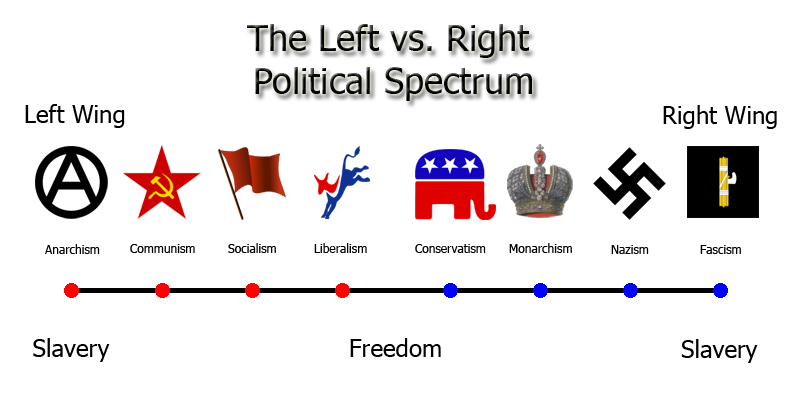- 20 Apr 2012 08:26
#13942813
In the thread where Dakotoria announced his dropping of libertarianism I made the following comment.
Essentially I am increasingly viewing politics as being divided into two groups. Those who agree with the vision in bold specifically this...
A mixed economy driven mostly by free enterprise with free trade and a relatively flexible labor market but with some government investment and social welfare provision funded via moderately progressive taxes.
And those who do not. Those who do not include socialists, communists, and anarchists on the left and libertarian and right-wing ideologues on the right. Increasingly, as much as my opponents disagree with each other I am starting to see them as one big giant blob, essentially a single organism fueled by irrational and extreme thought. Essentially I view my vision as rational and utilitarian and all other visions as irrational and emotional. It may seem conceited but I feel if you agree with me on the above vision you are with me and if you do not you are against me. My unified theory of politics essentially is this...
There are people who support the basic outline of society above and then there are extremists. We must fight against extremists of all stripes whether of left or right. To me extremism is the byproduct of irrational thought and must be equally opposed.
I can't say my current ideology sprang forth from my whole mind but I didn't waste time being a dittohead and giving myself a label. I see the idiocy of all sides as well as the wisdom contained within it. These things I know...
The laws of economics do not change while personal opinions do.
I consider myself to be philosophically utilitarian, combining this with a strongly empirical stance is how I reach my positions. I seek to maximize economic prosperity for the greatest number of people possible consistent with the realistic possibilities of living in a world with limited resources.
In general my observations of the world and of history have concluded that there is a model that is most successful in this area in terms of government and economic policy. I am not sure I would give it a name but it is there, it is a mixed economy driven mostly by free enterprise with free trade and a relatively flexible labor market but with some government investment and social welfare provision funded via moderately progressive taxes.
Source: http://www.politicsforum.org/forum/viewtopic.php?f=49&t=136543&start=120
Essentially I am increasingly viewing politics as being divided into two groups. Those who agree with the vision in bold specifically this...
A mixed economy driven mostly by free enterprise with free trade and a relatively flexible labor market but with some government investment and social welfare provision funded via moderately progressive taxes.
And those who do not. Those who do not include socialists, communists, and anarchists on the left and libertarian and right-wing ideologues on the right. Increasingly, as much as my opponents disagree with each other I am starting to see them as one big giant blob, essentially a single organism fueled by irrational and extreme thought. Essentially I view my vision as rational and utilitarian and all other visions as irrational and emotional. It may seem conceited but I feel if you agree with me on the above vision you are with me and if you do not you are against me. My unified theory of politics essentially is this...
There are people who support the basic outline of society above and then there are extremists. We must fight against extremists of all stripes whether of left or right. To me extremism is the byproduct of irrational thought and must be equally opposed.








 ...
...













 - By wat0n
- By wat0n - By Rancid
- By Rancid